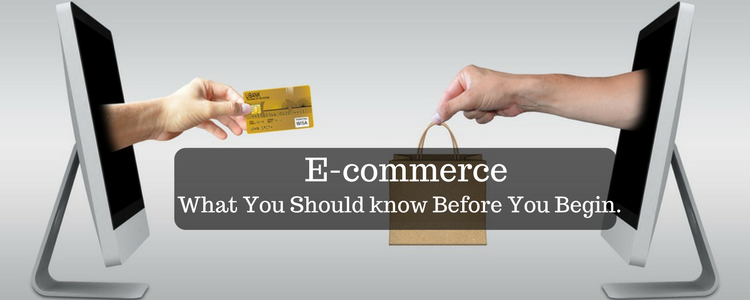In this day and age where over 60% of startups fail within the first year, it is imperative for every new business to have a concrete plan to ensure survival as well as profitability. Starting an E-commerce business is no exception to this vital rule of planning and sometimes its necessary to have a backup plan just in case your initial plan fails. Here are 10 tips to starting a successful business.
This article addresses the technical aspects of starting up a successful E-commerce website and some other important issues.
1. Domain Name
Your domain name is a very important aspect to starting an E-commerce website. It should be short, easy to remember, spell and pronounce. it’s not compulsory for your domain name to be your business name as some articles say, Just make sure it’s not a name adopted by another Company.
I don’t recommend using a niched domain name, e.g TeeFashion.com, simply because you may decide in the future to diversify i.e sell other non-fashion related products and having a niched domain name might make it a bit inappropriate.
Next, check for availability of your chosen domain name and register it.
2. Website Design and Hosting
There are two points to consider when creating your website.
1. Is it visually appealing?
2. Do users find it easy to buy products?
I recommend you do a prelaunch survey to find out how easy it is for users to buy stuff on your website before you launch it.
Find a reliable web hosting service or make sure your web designer or developer uses a reliable hosting service that ensures that your website loads fast (usually less than 5seconds) and is always available.
Note that you don’t need to worry about hosting if you use an E-commerce solution like Shopify.
3. Security
It’s a sad thing to say but there are people that look for ways to break into websites to steal information and user data. This is why your website must be security compliant having a secure socket layer certificate and other security measures in place.
Endeavor to backup our site regularly as this might save you in the event of being hacked or having some other issue.
4. Niched or General Merchandise
A niched E-commerce website focuses on a particular product category i.e Fashion, Electronics e.t.c while a general E-commerce website sells all product types as long as they are profitable.
It is generally easier to start and sustain a niched E-commerce website. Starting a general merchandise E-commerce website is usually faced with fierce competition with already existing ones.
5. Single or Multi-vendor E-commerce website
Do you want sellers to register on and sell their products on your website? If the answer is yes, then you need a Multivendor E-commerce website. An example of a this is Konga.com and Amazon.com.
The advantage of this option is that you can make a lot of profit from commission per product sale. Note however that a multivendor E-commerce website is very expensive to maintain and promote.
The alternative is a single vendor E-commerce where products are sold and managed by a single seller.
6. Product Sourcing
You don’t want to launch a scanty E-commerce website, therefore aggressive product sourcing should be carried out before launching your Website and continued product sourcing after website launch.
7. Advertising and Marketing
I think it’s safe to say that Advertising determines the initial and continued survival of an E-commerce Website. It quite expensive to adequately advertise these days but with an advertising expert and adequate market analysis, you can get good value for your money.
Generally, I recommend you use different types of advertising, (Broadcast Media, Print Media, Product Placement, Online advertising, Email marketing) making sure that you track the productivity of each adopted method.
8. Payment Methods
Make sure to adopt multiple and secure payment options for your site. Preferably one that is commonly used in your region.
Delivery/Shipping options
There are several issues that need to be addressed in this area.
9. Free or paid Delivery/Shipping?
The idea of free delivery/shipping seems good when you think of it as a customer but from the perspective of a seller, it may not be the way to go for young startups. So decide if it is profitable before you decide on free shipping. Note however that if your shipping rates are expensive, this might discourage customers from buying products on your site.
10. what Delivery/shipping areas?
Do not include an area you likely might not be able to cover at first. It’s better to deliver on your word in shipping to a few areas than fail to deliver and get poor customer reviews.
11. Delivery/Shipping time?
How long it takes you to deliver a product to a customer is very important and do not give a delivery time frame you cannot meet.
12. self or third party Delivery/shipping?
If you cannot handle shipping yourself, employ a shipping company to handle it for you.
Conclusion
E-commerce is a potentially lucrative field of business that needs a lot of planning.
Contact us for I.T and marketing consultation and we would be glad to help you succeed.

